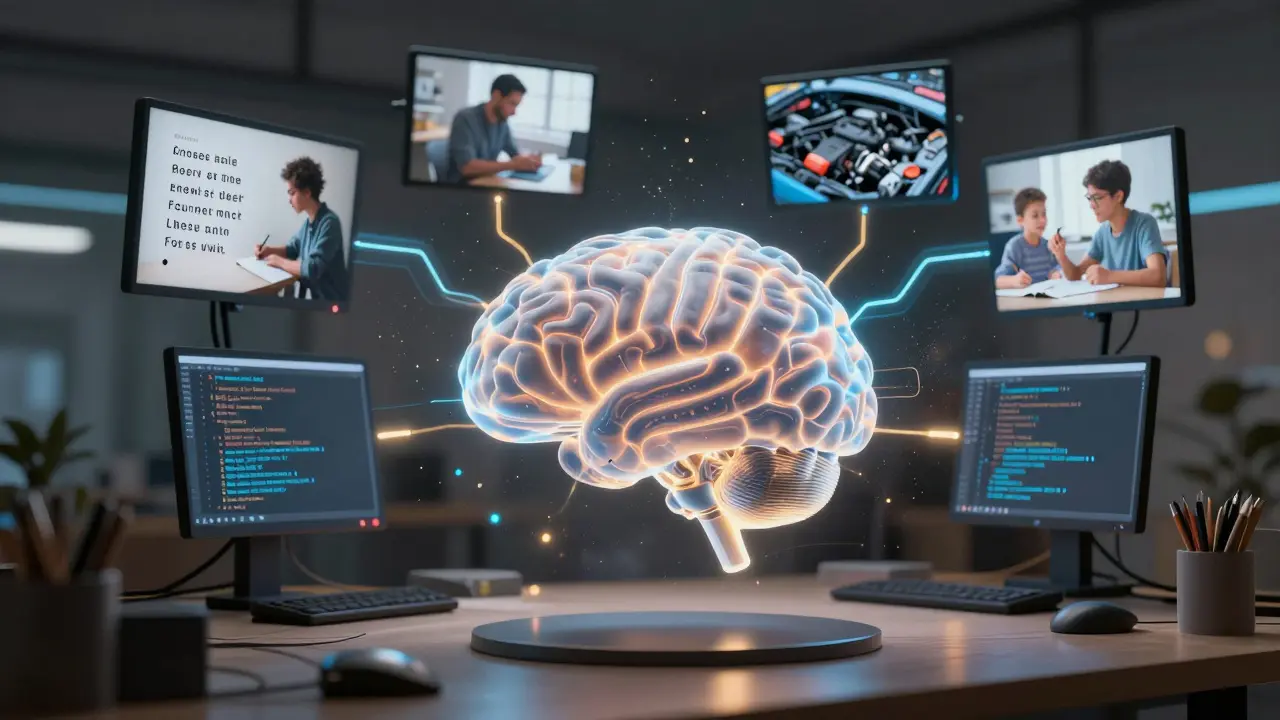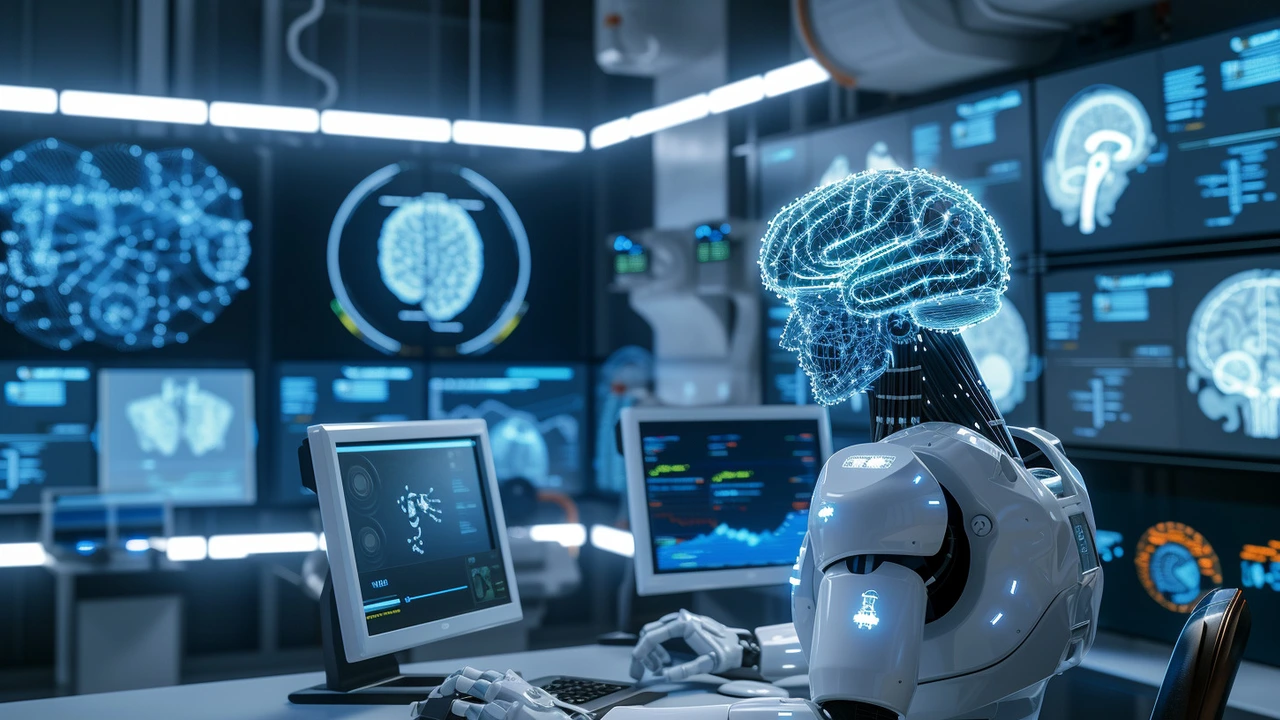Future of AI: What’s Coming and Why It Matters
Artificial intelligence isn’t a far‑off sci‑fi idea anymore—it's already in the tools we use daily. As we look ahead, the biggest question is: how will AI reshape our jobs, businesses, and everyday life? Below, we break down the most exciting trends, the skills you’ll need, and the real‑world impact you can expect in the next few years.
Automation + Human Skills = New Work Landscape
Automation is moving past simple repetitive tasks. In 2025, AI will handle resume screening, interview scheduling, and even initial employee onboarding. That doesn’t mean humans are out; it means HR teams will spend more time on strategy and less on paperwork. Companies that blend AI tools with human insight are already seeing faster hires and better match quality.
For developers, the shift is similar. AI‑powered code assistants can suggest snippets, catch bugs, and refactor whole modules in seconds. The trick is to learn how to give clear prompts and review AI output critically. Those who master this partnership will ship features faster and keep quality high.
From Narrow AI to Artificial General Intelligence (AGI)
Most AI today is narrow—good at specific tasks like image tagging or language translation. Researchers are closing the gap toward AGI, a system that can reason across domains like a human. While true AGI may still be a decade away, early prototypes are sparking debates about safety, ethics, and regulation. Staying informed about AGI risks helps you make better decisions whether you’re a startup founder or a policy maker.
In the meantime, practical steps matter. Learn Python, the go‑to language for AI, and get familiar with libraries like TensorFlow or PyTorch. Even a basic understanding lets you prototype small models, test ideas, and talk fluently with data scientists.
AI Skills That Pay Off
Want to future‑proof your career? Focus on three areas: data literacy, prompt engineering, and AI ethics. Data literacy means you can clean, visualize, and interpret data without relying on a specialist for every question. Prompt engineering is the art of crafting queries that get the best results from large language models—think of it as a new kind of coding. And AI ethics ensures you build systems that respect privacy, fairness, and transparency.
Many professionals are already building portfolios with 90‑day AI roadmaps, combining mini‑projects like chatbots, image classifiers, and automation scripts. Showcasing real results on GitHub or a personal site signals to employers that you can turn theory into impact.
What to Watch in the Next Few Years
1. AI‑driven personalization: From e‑commerce to education, systems will tailor experiences in real time, boosting engagement and outcomes.
2. Edge AI: Tiny models running on phones and IoT devices will make smart features available offline, improving speed and privacy.
3. Regulatory frameworks: Governments will roll out rules on data use, model transparency, and bias mitigation. Companies that adopt these standards early will gain a competitive edge.
4. AI for sustainability: Expect more tools that optimize energy use, predict climate impacts, and support circular economies.
The future of AI is a mix of powerful technology and human creativity. By staying curious, learning the right tools, and thinking ethically, you can turn today’s AI hype into tomorrow’s real advantage.

Artificial General Intelligence: What It Really Means and When It Might Arrive
Artificial general intelligence (AGI) could transform every aspect of human life-but we're still far from building it safely. Here's what AGI really means, why it's harder than expected, and what we need to do before it arrives.

The Age of Artificial General Intelligence: What Lies Ahead
Artificial General Intelligence is closer than most think. This article explores what AGI really means, when it might arrive, the risks and opportunities it brings, and what we can do today to shape its future.

The Exciting Future of Artificial General Intelligence
Artificial General Intelligence is no longer theoretical. Discover how AGI is evolving, what it can do by 2030, why alignment matters, and how it will reshape jobs, education, and human potential.

Artificial General Intelligence: What to Expect as AGI Arrives
Artificial General Intelligence (AGI) is close to moving from science fiction to reality, promising systems that can learn and adapt like a human across a wide range of tasks. This article breaks down what AGI really means, the changes it could cause in daily life and work, and the concerns that keep researchers awake at night. You'll get tips on how to prepare for this shake-up and spot early signs of AGI's impact. Get ready to see how AGI could rewrite the rules for jobs, learning, and even relationships with technology.

Mastering Coding for Artificial Intelligence: Essential Skills for the Future
Hey there! I'm just diving into the fascinating world of artificial intelligence and its incredible potential for changing our future. Learning to code for AI is not just a hobby for me—it's a crucial skill that's becoming as vital as reading or writing. Whether you're a newbie or a seasoned pro, grasping the foundations of AI programming is like holding a key to tomorrow's opportunities. I want to share why building these skills today can prepare us for a world where AI is integral, and how staying ahead of the curve will make us invaluable as the technology evolves.